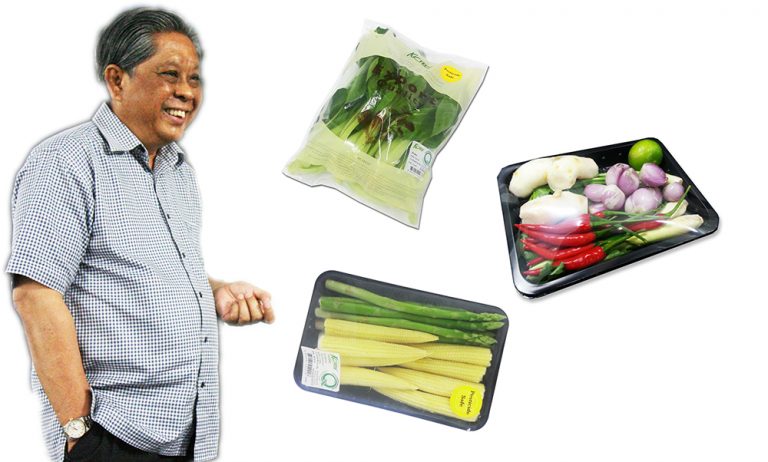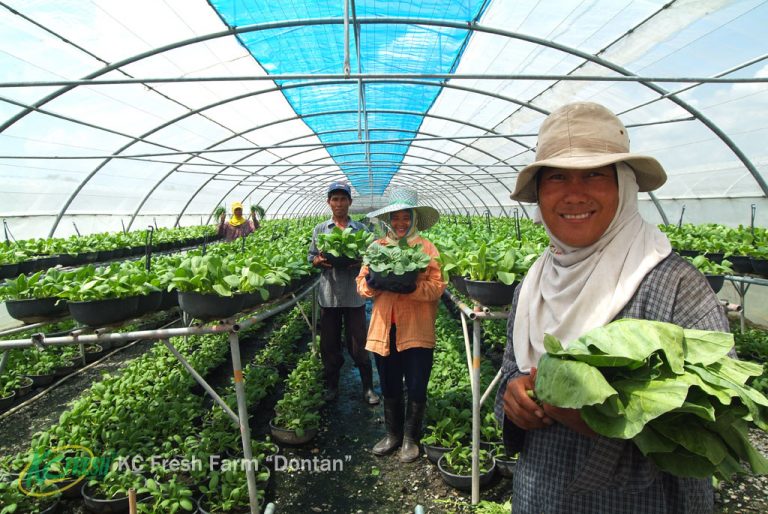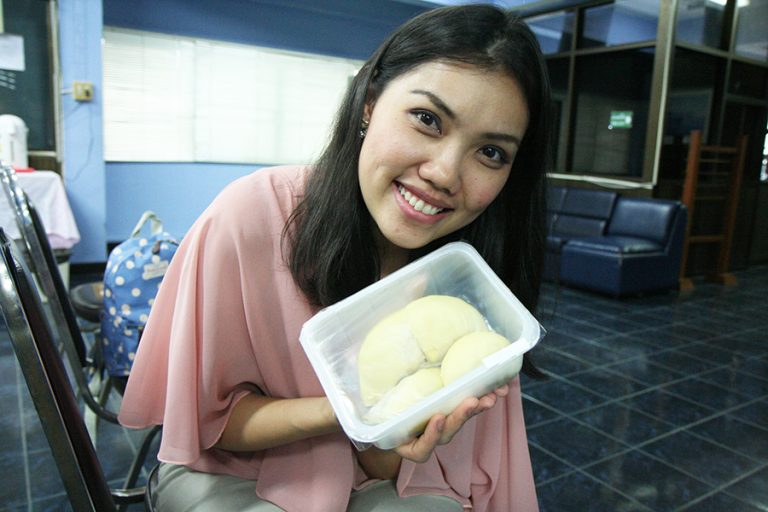
Writer: Rojana Manowalailao, ASEAN Sustainable Agrifood Systems
The outbreak of fatal mad cow disease found in red meat and other dairy products in 1999 in Belgium had fired up the food safety issue among the consumers not only in Europe, but around the world. This effected directly to Thai exporters and manufacturers, who export products especially perishable agricultural goods to the continent.

Mr. Chusak Chuenprayoth, founder of Thailand’s Kamphaengsaen Commercial Co., Ltd. or known as KC Fresh, who exported fruits and vegetables to Europe since 1993 had also been affected tremendously by the so-called issue.
Since the outbreak, the European Union required the international exporters to follow the standard classified in the EU white paper’s ‘Good Agricultural Practice’ (GAP) and this gave Mr. Chusak and his partner quite an astonished time.
The Food and Agricultural Organization of the United Nations (FAO) uses GAP as a collection of principles to apply for on-farm production and post-production processes, resulting in safe and healthy food and non-food agricultural products, while taking into account economical, social and environmental sustainability.
“When we started, we just bought the vegetables from the market, packed and sold [export]. GAP was quite new to Thailand and not many Thai people had the knowledge about it at that time,” Mr. Chusak said.
His first attempt was to educate himself about this sustainable production. He contacted Kasetsart University, which was well known in agricultural education in Bangkok, in order to translate the EU’s GAP from English to Thai for his better understanding.
At a step by step, he redesigned and reconstructed his export business system taking into consideration the concept of sustainability in the three dimension areas mentioned. Instead of buying fresh vegetables and fruits from the local markets, he established his own ‘family farming system’ under his close monitoring on a use of chemical pesticide and fertilizer. Mr. Chusak made farming contracts with local farmers in Kanchanaburi, Nakornprathom, and Suphanburi.

“Farming contract is a deal on the paper, but what is more important is building trust. I see my farmers as partners. We communicate a lot to make sure that farmers are happy with us and the offers,” he said.
In the ‘family farming system’ farmers share lands and work together in a group as a one big family. In Dontoom Farm, Nakornprathom, for example, 30 contracted small-holder farmers from 13 families grow vegetables together in the shared cultivation area of 125 rai (20 hectare). They grow Chinese morning glory, green asparagus and sweet basils which bring them a net annual income of Baht 211,500 (Euro 5,430) per person. For the Chinese morning glory alone, the farmers at the Dontoom Farm harvest 1 ton (1,000 kilograms) per day continuously for 365 days for export and domestic markets.
On average, KC Fresh delivers 75 tons per month to the oversea markets and 20 tons per month within local markets from the three farms.
“In the beginning I had a lot of headaches,” Mr. Chusak said. “We had to design and calculate how we could harvest the required numbers of the fresh produces daily for every 365 days in GAP qualities.”
In the early days Mr. Chusak had experts from Kasetsart University and also other local agriculture universities visiting the farms on a regular basis to train and educate farmers about the GAP and how to keep up the farming system with the global standard.
It took Mr. Chusak almost 10 years to develop the standardized and sustainable family farming system. He put the special thanks to Kasetsart University and advices from an agricultural expert from South Africa, as well as his farmers and good partnership with supermarket chains in the United Kingdom, where he mostly imports his fresh vegetables and fruits to.

“We will never be successful without the qualified human resource,” Mr. Chusak said, “It is very important to help the people in our supply chain developed as we possibly as we could.”
Mr. Chusak also developed a packing house system and made sure that all the fresh produces were checked, recorded, washed, pre-graded and packed to be in accordance with the certified food safety and standard measures.
KC Fresh is currently certified with ThaiGAP, Q-GAP and GLOBALG.A.P. ThaiGAP is the voluntary private standard while Q-GAP is the government standard belonged to Thailand’s Ministry of Agriculture and Cooperatives. GLOBALG.A.P is the global GAP certifications.
“Standardization is a basic rule and we have to comply,” he said.
Mr. Chusak also put high priority on logistics management to make sure that customers receive quality fresh produces.

The vegetables and fruits are picked in the early morning and sent directly to the packing house within half an hour. At the Dontoom farm where it is quite a distance from the main packing house he built a packing room to secure freshness. After all the packing processes, the products are delivered by the cool truck and always kept in the cool storage room or containers during shipment. For local markets, the products are guaranteed delivery within 24 hours after harvesting while the oversea supermarket chains will receive the goods within 48 hours.
In case of exporting, Mr. Chusak said good communication and support from reliable airlines were needed.
“We have our pride and we have to maintain our reputation,” he said.
After over 20 years in the agrifood business KC Fresh now becomes one of the successful export companies in Thailand with chains of partnership in Asia and Africa continent. Only in the first half of 2016, the company reached a sale volume of 20 million Pound.
When asked if he found anything left challenging, Mr. Chusak said he wanted to name Thailand the food safety and food standard country.

Now that he also chairs at Thai Chamber of Commerce as Deputy Secretary General, he is working on a setup of primary GAP, which is the voluntary private standard, as an entry point for Thai farmers to acquire the higher level standard of ThaiGAP and Q-GAP.
“If we want to develop the [agrifood] industry, we need to set the standard,” he said, “But it is hard to push when people are not yet ready. The farmers need to grow one step at a time. It is like before students pass to secondary schools, they have to go through primary schools first. The benchmark of global GAP is high and to get the Thai national GAP is also not easy. Government may wish to subsidize the cost to implement the Thai national GAP. The farmers need a lot of coaching and training.
“Without the certified food safety and standard, who will trust products from Thailand?,” Mr. Chusak said.